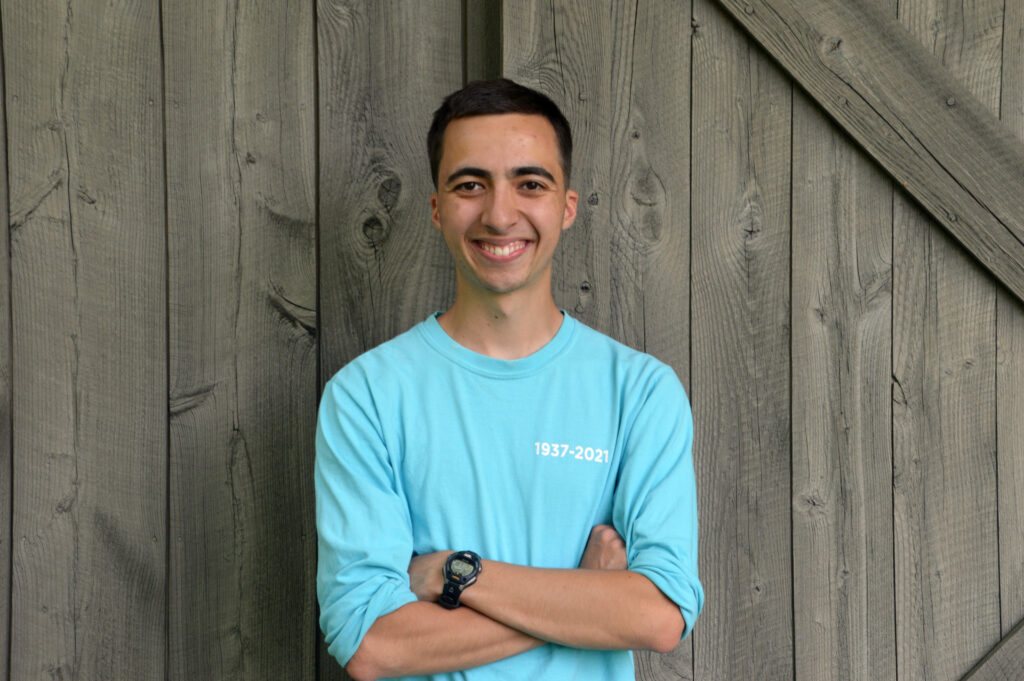Beau Martinez is a Yale Conservation Scholar and student at the University of Notre Dame studying Political Science and Sustainability. He joins Highstead for a nine-week internship to learn more about conservation and environmental policy by assisting the Highstead Conservation Finance Program in expanding its article series covering emerging federal conservation funding, developing an invasive plant identification guide for Metalmark butterfly habitat restoration purposes, and designing a community conservation workshop for the Hudson to Housatonic Regional Conservation Partnership.

The Yale Conservation Scholars Early Leadership Initiative is a summer internship program for undergraduates who are traditionally underrepresented in the conservation field and who are interested in conservation-related careers. Program participants develop their networks and work directly with environmental professionals during and after their internships.
What do you hope to gain from your time at Highstead? How does your Highstead internship fit into your career plans?
Beau: I hope to be introduced to multiple subject areas I am not yet familiar with, so I can fully prepare for a future in conservation work. These new areas of interest in invasive plants, conservation finance, and regional planning will all contribute to my goal of working in the field of conservation and environmental policy analysis after college.
What was your favorite course in undergrad?
Beau: My favorite undergrad course so far was a course called Climate Change and Armed Conflict. We analyzed the increased regional and international competition over the reduced quality and quantity of natural resources as a result of climate change. I especially enjoyed learning about the international naval disputes between northern countries in the melting Arctic Ocean.
What advice would you give to students looking to pursue a career in conservation?
Beau: The world of conservation is multifaceted and complex, and it is essential to consider your skills and interests to determine which industry suits you best. That may mean exploring areas of academia and industry sectors you have little experience with, as well as networking with conservation groups and organizations, to find what interests you most.
What advice have you received that has stuck with you?
Beau: “No one has to do everything, but everyone has to do something.”
What drew you to Highstead?
Beau: Conservation and environmental management are new areas of interest for me, and I was not sure which avenues I wanted to work in. When I was researching all the internship sites available for Yale Conservation Scholars, I noticed that Highstead offered a motley of programs ranging from plant identification to conservation finance and policy analysis, which I believed would help me narrow down my interests.
Any surprises so far?
Beau: There are many aspects of a new job I have come to expect, but there are others I hardly ever even consider. When I first came to Highstead, I appreciated how incredibly proud everyone was with their own work and willing to share their personalized connection with Highstead’s property and mission with me.
How does the Highstead internship compare to your past work experience?
Beau: At Highstead, the level of trust from my supervisors has granted me extensive freedom to utilize my own creativity and problem-solving skills to complete projects, an aspect I have yet to experience at any other job. Also, the overwhelming beauty of the workspace is incomparable to the previous dimly-lit office buildings I worked at.
Who are your conservation heroes throughout history and today and why?
Beau: I have grown an appreciation for author and conservationist John Muir for his role in the establishment of establishing the National Parks Service alongside President Theodore Roosevelt, and for his founding of the Sierra Club, an organization I have followed for years. I have also learned a lot about our role in protecting our world and its resources through the authors, such as the works of Ralph Waldo Emerson, Aldo Leopold, and Henry David Thoreau.